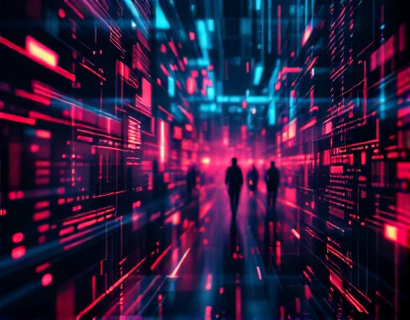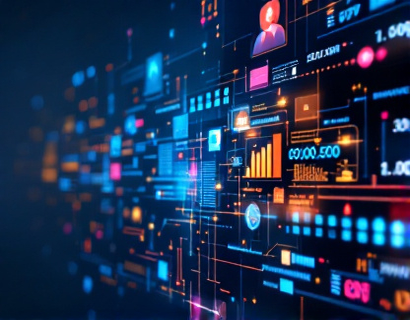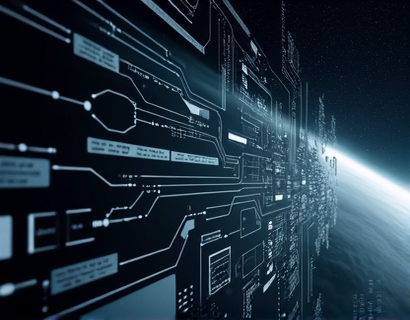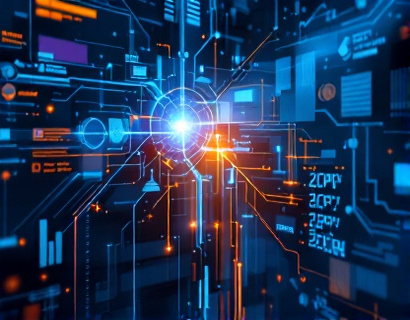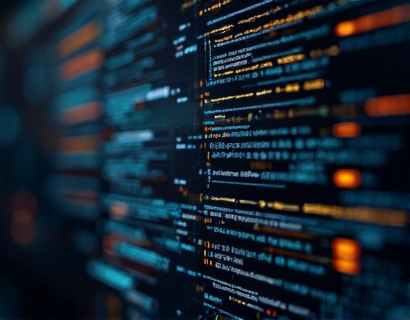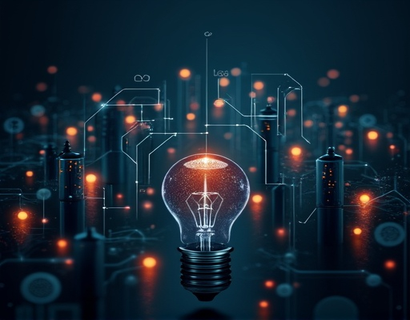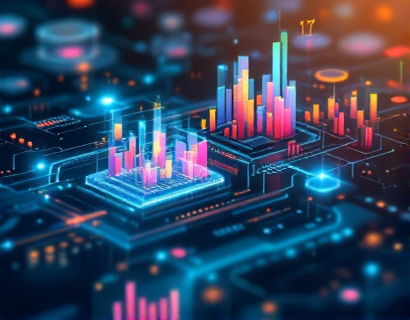Harnessing AI and Crypto: Revolutionizing Ucosystem Applications for the Next Generation
The integration of artificial intelligence (AI) and cryptocurrency is ushering in a new era of technological advancements that are poised to transform digital interactions and experiences. This convergence creates a powerful synergy, enabling the development of next-generation applications that leverage the strengths of both domains. As tech-savvy innovators and early adopters in the crypto and AI space continue to push the boundaries, the potential for groundbreaking applications becomes increasingly evident. This article delves into the revolutionary impact of merging these two cutting-edge technologies, exploring how they are reshaping the digital landscape for forward-thinking individuals.
The foundation of this transformation lies in the unique capabilities of AI and cryptocurrency. AI, with its ability to process vast amounts of data, learn from patterns, and make intelligent decisions, is revolutionizing how we interact with technology. On the other hand, cryptocurrency, built on blockchain technology, offers a decentralized, secure, and transparent way to conduct transactions and store value. When combined, these technologies can create applications that are not only more efficient and secure but also more intuitive and user-friendly.
One of the key areas where AI and cryptocurrency are making a significant impact is in the realm of decentralized finance (DeFi). DeFi platforms are leveraging AI to enhance their services, offering more sophisticated and personalized financial tools. For instance, AI-driven algorithms can analyze market trends, predict price movements, and optimize trading strategies, providing users with valuable insights and automated decision-making capabilities. This fusion of AI and cryptocurrency is democratizing access to advanced financial services, making them more accessible to a global audience.
Another transformative application is in the field of identity verification and management. Traditional identity systems are often centralized, vulnerable to breaches, and prone to misuse. By integrating AI and blockchain, new identity solutions can be created that are decentralized, secure, and user-controlled. AI algorithms can verify identities through biometric data, behavioral patterns, and other unique identifiers, while blockchain ensures that this data is immutable and tamper-proof. This approach not only enhances security but also gives users greater control over their personal information.
The healthcare sector is also witnessing a revolution thanks to the combination of AI and cryptocurrency. AI-powered diagnostic tools can analyze medical data, identify patterns, and assist doctors in making accurate diagnoses. Cryptocurrency and blockchain can facilitate secure and private sharing of medical records, ensuring that patient data is protected while still being accessible to authorized healthcare providers. Smart contracts on the blockchain can automate insurance claims and payments, streamlining the process and reducing administrative costs.
In the domain of supply chain management, AI and cryptocurrency are working together to create more transparent and efficient systems. AI can optimize logistics, predict demand, and detect anomalies in real-time, while blockchain provides a tamper-proof ledger for tracking goods from origin to destination. This combination ensures that every step of the supply chain is recorded and verifiable, reducing fraud and increasing trust among stakeholders. For businesses, this means improved operational efficiency and cost savings, while consumers benefit from greater transparency and product authenticity.
The gaming industry is another area where AI and cryptocurrency are driving innovation. AI enhances gameplay by creating more realistic and adaptive non-playable characters (NPCs), generating dynamic content, and personalizing user experiences. Cryptocurrency and blockchain technology enable in-game economies based on real value, allowing players to earn, trade, and own digital assets. This not only adds a new layer of engagement but also opens up new revenue streams for game developers and players alike.
In the realm of content creation and distribution, AI and cryptocurrency are reshaping how creators produce and monetize their work. AI tools can assist in content generation, from writing and editing to visual and audio production. These tools can analyze trends, suggest ideas, and even create high-quality content autonomously. Cryptocurrency and blockchain provide a fair and transparent way to reward creators, ensuring that they receive proper compensation for their work. Decentralized platforms can connect creators directly with audiences, cutting out intermediaries and maximizing profit margins.
The education sector is not lagging behind in this technological revolution. AI-driven educational platforms can personalize learning experiences, adapting to the needs and pace of each student. These platforms use AI to analyze student performance, identify knowledge gaps, and provide tailored resources and exercises. Cryptocurrency can facilitate micro-payments for educational content, allowing learners to access high-quality materials without the barriers of traditional subscription models. Blockchain can also ensure the integrity and ownership of digital certificates and credentials, making them verifiable and portable.
Smart cities are another frontier where AI and cryptocurrency can make a significant impact. AI can optimize urban planning, traffic management, energy consumption, and public safety, creating more efficient and sustainable cities. Cryptocurrency and blockchain can support these efforts by enabling peer-to-peer energy trading, secure and transparent governance, and community-driven initiatives. For example, blockchain-based platforms can allow residents to buy and sell excess renewable energy directly, fostering a more decentralized and resilient energy system.
The environmental sector is also benefiting from the AI-crypto convergence. AI can analyze vast amounts of environmental data to monitor and predict ecological changes, optimize resource usage, and develop sustainable practices. Cryptocurrency can incentivize eco-friendly behaviors through token-based reward systems, encouraging individuals and businesses to adopt greener practices. Blockchain can ensure the traceability and authenticity of sustainable products, helping consumers make informed choices and supporting environmentally responsible brands.
As the integration of AI and cryptocurrency continues to evolve, it is essential to address the challenges and considerations that come with this powerful combination. Security remains a top priority, as the combination of these technologies can also attract malicious actors. Robust security measures, including advanced encryption, multi-factor authentication, and continuous monitoring, are crucial to protect user data and assets. Additionally, regulatory frameworks need to adapt to the rapid pace of innovation, ensuring that the benefits of these technologies are realized while minimizing risks.
Education and awareness are also vital components in the widespread adoption of AI and cryptocurrency applications. As these technologies become more complex, it is important to equip users with the knowledge and skills needed to navigate and leverage them effectively. This includes understanding the basics of blockchain, the capabilities of AI, and the potential applications in various industries. Community-driven initiatives, online courses, and collaborative projects can play a significant role in fostering a more informed and empowered user base.
Looking ahead, the future of AI and cryptocurrency integration holds immense potential. As research and development progress, we can expect even more innovative applications across various sectors. The convergence of these technologies is not just about enhancing existing systems but about creating entirely new paradigms. From decentralized autonomous organizations (DAOs) to virtual reality environments powered by AI, the possibilities are vast and exciting.
In conclusion, the merging of AI and cryptocurrency is revolutionizing the ucosystem, paving the way for a new generation of tech-driven applications. These applications are not only transforming digital interactions and experiences but also addressing some of the most pressing challenges in finance, healthcare, supply chain, gaming, education, urban planning, and environmental sustainability. As tech-savvy innovators and early adopters continue to explore and develop these technologies, the future looks bright for those who embrace this transformative combination.






